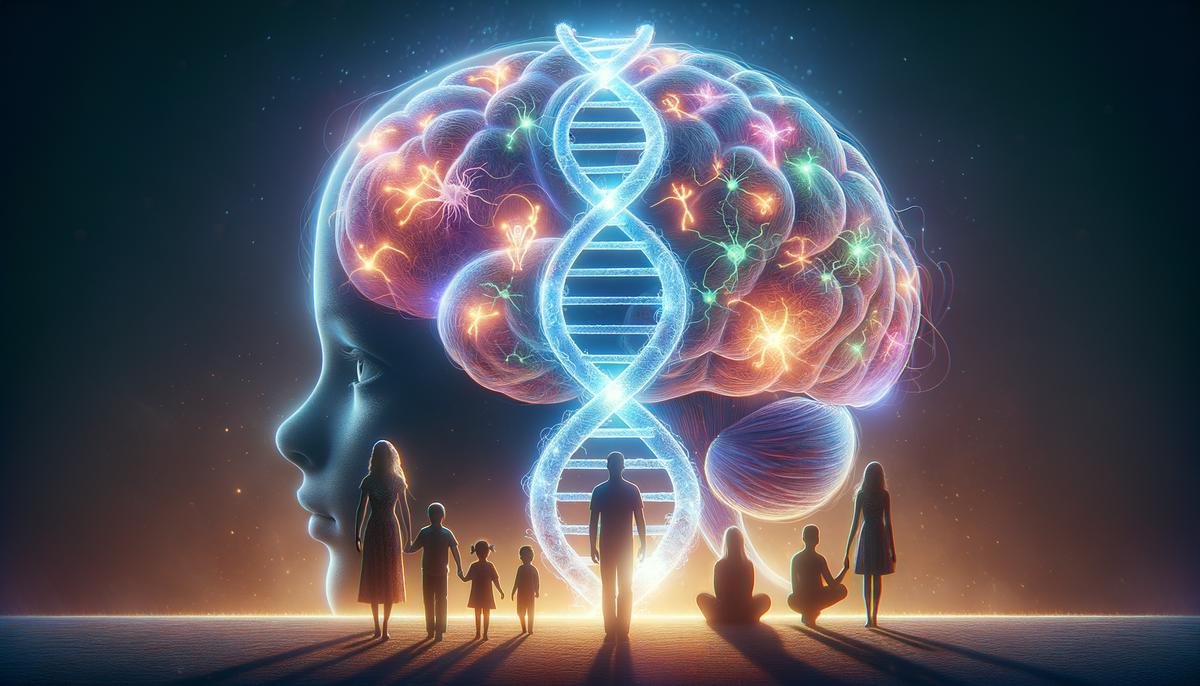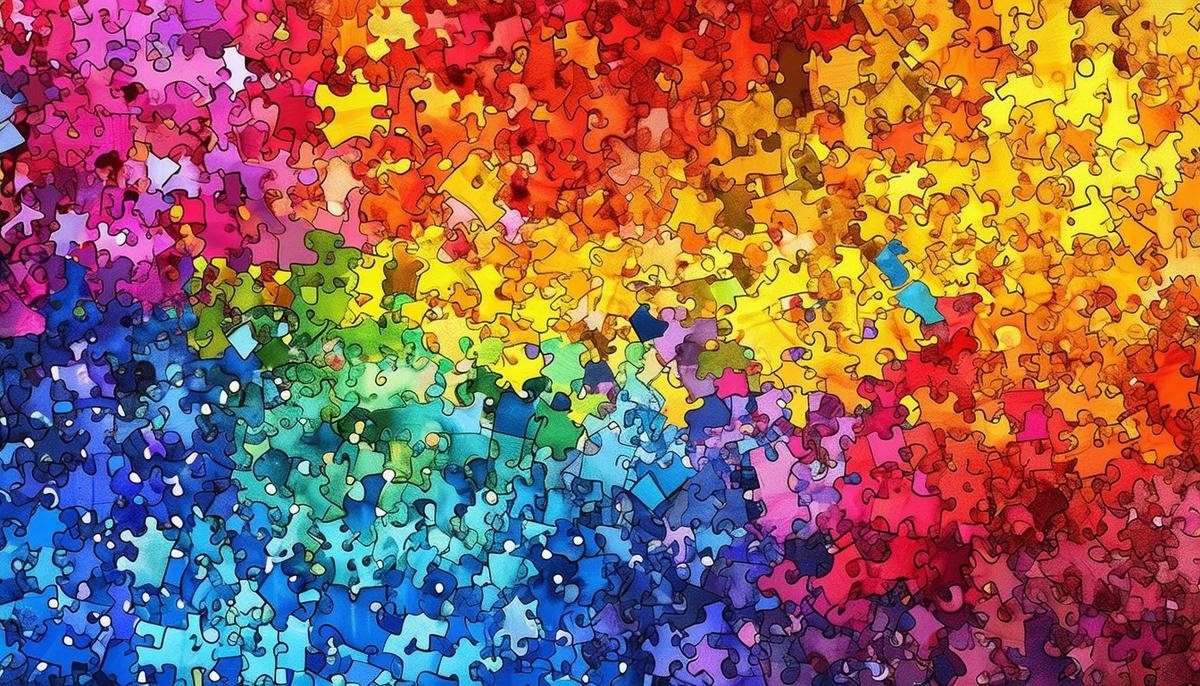
Autism Spectrum Disorder (ASD), as diverse and expansive as it is, carries with it a wealth of experiences, challenges, triumphs, and a distinctive outlook on the world. As complex as it is unique, ASD encompasses a spectrum of cognitive, social, and behavioral traits that manifest differently in everyone. The realm of adults living with ASD is objectively less explored, yet it is a compelling and necessary subject to delve into. This document aims to shed light on the experiences of adults with autism by examining different facets of their lives. From the basics of understanding autism to the journey of adulthood, their social interactions, and personal identity formation, each provides a unique perspective into their world.
1. Unveiling Autism: An Overview
Understanding the Autism Spectrum: How It Impacts Adults
We live in a beautifully diverse world where every person brings a unique blend of talents, perspectives, and experiences. Among these myriad human variations is a condition known as Autism Spectrum Disorder (ASD). Now, you might be familiar with how autism impacts children, as this is commonly discussed in parenting circles. But it’s equally important to understand how autism shapes the lives of adults.
When we say “autism spectrum,” we are referencing the broad range of conditions characterized by challenges with social skills, repetitive behaviors, speech, and nonverbal communication. Autism isn’t a one-size-fits-all diagnosis, which explains why we refer to it as a “spectrum.” Think of it like a rainbow: just as there are many colors in a rainbow, there are many variations within the autism spectrum.
So how does it impact adults? The first thing to remember is that, just like children, no two adults with autism are alike. ASD is complex, and its manifestations can vary dramatically between individuals. Some adults live independently, pursue careers, and maintain relationships — albeit often with additional challenges — while others may require more extensive support.
An integral part of ASD in adults is social challenges. Adults on the spectrum might struggle with understanding and reciprocating social cues, expressing their emotions, or consistently adhering to societal norms. To an outsider, these interactions might come off as awkward or unengaged, but remember — this is a part of their neurological wiring. It is not a choice.
Simultaneously, adults with autism may deal with limited flexibility. Routine and predictability can act as lifelines for those on the spectrum, helping them to manage anxiety and navigate the world around them. A seeming minor change — like a rescheduled meeting or a new brand of coffee — can feel overwhelming.
Now, there is more to ASD than just its challenges. Many adults with autism have unique strengths and abilities, often outshining their neurotypical peers in areas such as detail-oriented tasks, sustained concentration, and dedication to their passions. Some also show remarkable talents in arts, mathematics, technology, and more.
Finally, it’s essential to understand that adults with autism can lead fulfilling lives. With the right kind of understanding, acceptance, and tailored support, they can thrive in their unique way. They have the same fundamental human needs as anyone else – love, respect, and a sense of belonging.
As family members, friends, employers, and neighbors, let’s strive to improve our understanding and empathy towards those on the spectrum. A little patience, open-mindedness, and kindness can go a long way in making the world a more inclusive place for adults with autism.

2. Transition to Adulthood: Stepping into a New Phase
The Journey to Adulthood: Supporting Individuals with Autism Spectrum Disorder (ASD)
Life’s great transition to adulthood can be an exciting, yet overwhelming experience for any individual. This occasion comes with an added layer of complexity when the individual preparing to navigate these uncharted waters has Autism Spectrum Disorder (ASD). Individuals with ASD face their share of unique challenges and, often, subtle support structures can help them effectively traverse this significant phase of their life journey.
Perhaps one of the most notable ways the transition to adulthood impacts young adults with ASD is the abrupt discontinuation of many support services received during their school years. For years, they may have had access to an array of specialized services – everything from Speech and Language Therapy, Occupational Therapy, or even a personal aide depending on their needs. Sadly, most of these services evaporate as they age out of the educational system. However, quite the contrary should happen: Enhanced and targeted support structures should be encouraged as they transition into adulthood.
When it comes to desired support systems, quality vocational training has been proven to be instrumental. Often, traditional employment poses challenges due to a lack of understanding of ASD in the workplace or competitive job markets. Tailored vocational programs offer a safe environment where individuals with ASD can learn employable skills while acknowledging and accommodating their unique differences.
Inclusive housing options also serve as pivotal support structures. Shared living accommodations that emphasize community and mutual support offer the opportunity for increased independence with a built-in safety net. It’s about creating a balance – they should have the independence that adulthood brings, yet receive assistance when required.
Professional mental health support, too, is significantly beneficial. Such services can help individuals with ASD cope with any anxiety or depression, which often co-occurs with ASD. Additionally, these mental health professionals can play an instrumental role in teaching effective coping strategies for any social issues they may encounter.
The essence of it all is this: society must strive to offer a spectrum of support that aligns with the unique challenges and abilities of people living with ASD in their transition to adulthood. From vocational training to inclusive housing, professional mental health support to autism-friendly workplaces, these are not just “nice-to-haves.” Rather, they’re vital steppingstones on the pathway to an independent, fulfilling adult life for individuals with ASD.
Creating these support structures requires us – as a community, as a society – to ensure that the needs of individuals with ASD are considered and catered for. It’s about time we close the gap – recognize the specific challenges faced by this cohort, and strive harder to ease this monumental life transition. After all, our collective goal is to raise a generation without barriers, where inclusivity and equality are the norm, not the exception.

3. Building Relationships: Social and Personal Interactions
Wading through the waters of adulthood and forming personal and social bonds can represent a significant challenge for individuals with Autism Spectrum Disorder (ASD). These adults grapple with the conventional touchstones of growing up – such as maintaining relationships, securing employment, or living independently – more so than their neurotypical counterparts. Adapting to these scenarios requires tailored approaches that celebrate their strengths and understand their unique needs. Every ASD journey is different, and it’s our responsibility as a society to adapt to their world as much as it is theirs to adapt to the world we occupy.
Many adults with ASD find it challenging to carry out mentoring or nurturing relationships. From friendships to romantic interplays, navigating relationships and interpreting social cues can be daunting. However, these obstacles don’t imply an inability to foster fulfilling relationships. With appropriate guidance and understanding, their capacity for deep commitment and loyalty can create highly rewarding relationships that thrive on honesty and genuineness.
To foster these bonds, patience, constancy, and clear communication are key. Eliminating assumptions about what they should know or can infer is pivotal, as is using literal and explicit communication. Schedule and structure, reliable routines can enhance their confidence and understanding in interactions- so integrating consistency into relationships can help.
Work relationships too, can be difficult to navigate. Vocational training and employment support services are crucial in aiding adult ASD individuals. With proper accommodation and understanding, they can thrive and contribute meaningfully. Encouraging an autism-supportive environment, that values their unique perspectives and skills, whilst recognizing their need for clear instruction, repetition and routine, promises benefits for all involved.
Forming bonds within the community is integral to an individual’s inclusion. Community-based programs that allow individuals with ASD to be part of social settings can be the key in building their societal relationships. It’s significant to promote an ‘autism-friendly’ society where tolerance, acceptance, and understanding aren’t just buzzwords but societal customs.
Adults with ASD require affirmation and understanding that they are valued members of our society with much to offer. It’s imperative that we, as family members, friends, colleagues, or simply citizens, extend them the respect and consideration we’d all appreciate and foster a world where their unique abilities are celebrated and nurtured. By taking these steps, not only will we grow as a society, but we’ll enable adults with ASD to flourish personally and socially too. Let’s remember that nurturing successful relationships with adults with ASD begins with honoring their lived experience. In doing so, we celebrate our shared humanity and enrich their sense of belonging and acceptance.

4. Developing Self-Identity: Achieving Self-Esteem and Acceptance
With the previous passages providing a comprehensive understanding of Autism Spectrum Disorder (ASD), the complexities of being an adult with ASD, and societal roles in inclusive support, this article now seeks to delve further into an essential aspect – nurturing a healthy self-identity in adults with autism.
Forging a healthy self-identity is vital for all individuals, but particularly for adults with ASD who may battle self-esteem issues stemming from societal rejection or perceived differences. So, how can they achieve this?
Firstly, embracing one’s uniqueness is crucial – it’s important to remember that autism is not a weakness. It’s a different way of experiencing and interacting with the world. This recognition can be empowering for individuals with ASD, helping them embrace their strengths and talents.
Identifying their passions and pursuing them wholeheartedly can also contribute immensely to self-identity. Whether it’s an interest in music, technology, art, or nature, encouraging each person to explore what they love unapologetically can bring immense fulfillment.
In the case of communication difficulties, utilizing alternate modes of expression, like art, writing, or sign language, can be liberating. These outlets can provide individuals with ASD unique ways to share their thoughts, ideas, and feelings, strengthening their voices and identities.
Celebrate accomplishments, big or small – every milestone achieved, every goal reached, is a testament to personal strength. From managing to maintain a set routine to conquering a new task, every win deserves to be recognized and celebrated.
Now, what can society do? Society plays a pivotal role in affirming these self-identities. Inclusion, acceptance, and equality should not just be aspirational goals; they should be the norm. Parents, educators, friends, employers, and coworkers – every interaction, every relationship counts in validating the self-identity of adults with ASD.
Recognizing neurodiversity – the understanding that neurological differences like autism are normal variations in the human genome – is a step in the right direction. By truly believing in and practicing neurodiversity, society can foster a culture of inclusivity and acceptance.
In the workplace, embracing neurodiversity and providing accommodations like quiet workspaces, flexible schedules, or task-specific instructions can make a world of difference to adults with ASD.
Implementing autism-awareness programs in schools, workplaces, and community centers can break down misconceptions and erect bridges of understanding. This encourages society to move past ignorance and towards acceptance, fostering an environment where individuals with ASD can fully embrace their self-identity with pride.
To create an environment conducive for adults with ASD to grow their self-identity, society must shift from merely being ‘aware’ of autism to understanding and accepting it. It needs to continually affirm that adults with ASD are valuable, capable, and essential members of society. It’s not just about living in an inclusive society; it’s about thriving with ASD in the society we all share.
The journey towards nurturing a healthy self-identity in adults with autism is multifaceted. It necessitates self-confidence and self-belief, and more importantly, an empathetic and understanding society. Together, we can contribute to this journey, one step at a time, because when everyone understands, everyone belongs.

The prism of autism is as varied as it is insightful. The experiences of adults with autism, though sprinkled with unique challenges, are also filled with moments of triumph, resilience, and unequivocal uniqueness. The journey from acquiring an understanding of autism, to transitions into adulthood, establishing social relationships, and forming a self-identity, every stage requires empathy, understanding, and societal support. Autism, far from being a condition to be remedied, is a facet of diversity, a thread in the grand tapestry of human experience. By embracing and empowering adults with autism, society wins by inclusive growth and the recognition of the strength in our collective diversity.




